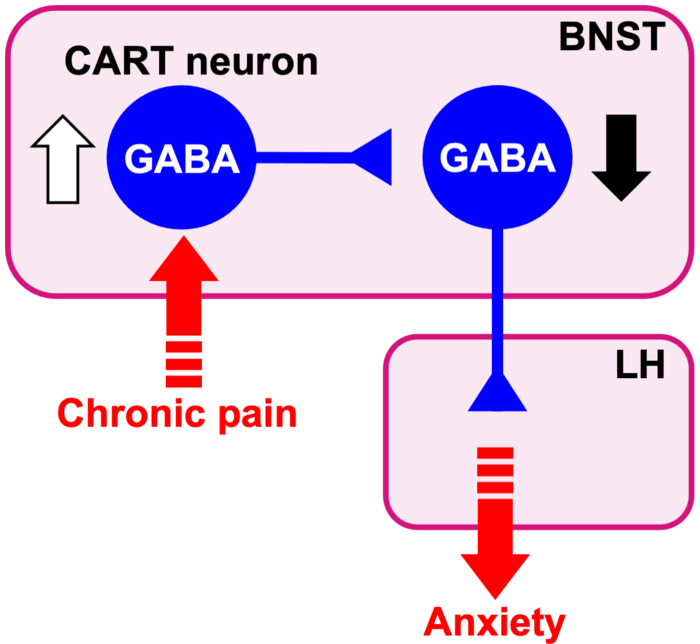Hokkaido University researchers have shown how chronic pain leads to maladaptive anxiety in mice, with implications for treatment of chronic pain-related psychiatric disorders in humans.

Credit: Naoki Yamauchi, et al. Science Advances. April 27, 2022
Hokkaido University researchers have shown how chronic pain leads to maladaptive anxiety in mice, with implications for treatment of chronic pain-related psychiatric disorders in humans.
Chronic pain is persistent and inescapable, and can lead to maladaptive emotional states. It is often comorbid with psychiatric disorders, such as depression and anxiety disorders. It is thought that chronic pain causes changes in neural circuits, and gives rise to depression and anxiety.
Researchers at Hokkaido University have identified the neuronal circuit involved in chronic pain-induced anxiety in mice. Their research, which was recently published in Science Advances, could lead to the development of new treatments for chronic pain and psychiatric disorders such as anxiety disorders and major depressive disorder.
“Clinicians have known for a long time that chronic pain often leads to anxiety and depression, however the brain mechanism for this was unclear,” said Professor Masabumi Minami of the Faculty of Pharmaceutical Sciences at Hokkaido University, the corresponding author of the paper.
The researchers looked at how neuronal circuits were affected by chronic pain in mice. They used an electrophysiological technique to measure the activities of neurons after four weeks of chronic pain. They found that chronic pain caused the neuroplastic change which suppressed the neuronal pathway projecting from the brain region called bed nucleus of the stria terminalis (BNST) to the region called lateral hypothalamus (LH).
Using chemogenetics, an advanced technique to manipulate neuronal activity, they showed that restoration of the suppressed activity of this neuronal pathway attenuated the chronic pain-induced anxiety. These findings indicate that chronic pain-induced functional changes in the neuronal circuits within the BNST leads to maladaptive anxiety.
“These findings could not only lead to improved treatment of chronic pain, but also to new therapeutics for anxiety disorders,” says Minami.
Journal
Science Advances
DOI
10.1126/sciadv.abj5586
Method of Research
Experimental study
Subject of Research
Animals
Article Title
Chronic pain-induced neuronal plasticity in the bed nucleus of the stria terminalis causes maladaptive anxiety
Article Publication Date
27-Apr-2022




